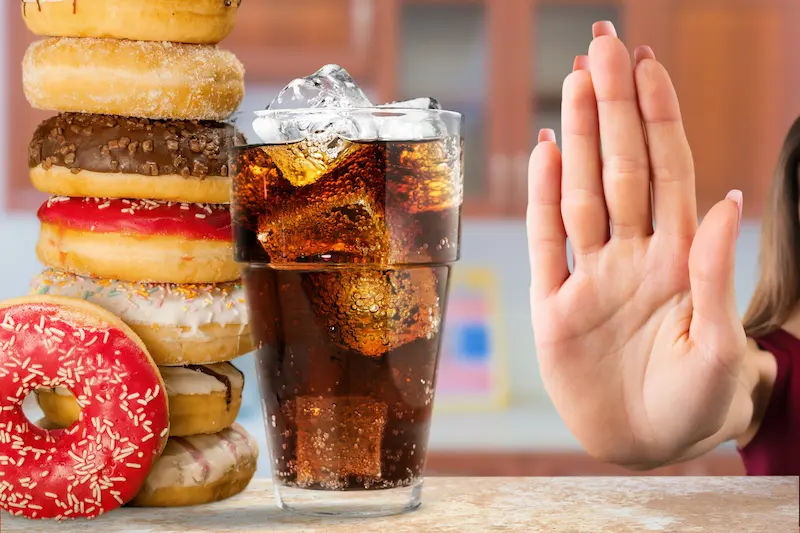Facial Swelling: Top Causes and What to Do
Discover the common and serious causes of facial swelling—from allergies, dental infections, and sinusitis to thyroid disorders and kidney problems. Learn symptoms, treatment options, and when to seek urgent medical care.


Noticing your face looking puffy or swollen can be alarming. While sometimes it's just a sign of a good cry or a bit too much salt, facial swelling can also be a window into your overall health, pointing to anything from a minor allergy to a more serious medical condition. This guide will walk you through the common and not-so-common reasons for facial swelling, helping you understand the potential causes, when to worry, and what steps you can take to find relief. We'll explore everything from dental issues and sinus infections to allergic reactions and underlying health conditions, empowering you with the knowledge you need to take the next best step for your well-being.
Understanding the Spectrum of Facial Swelling Causes
The face is a complex area rich with blood vessels, nerves, sinuses, and salivary glands. Because of this, swelling can originate from multiple systems within the body. It's helpful to categorise the causes to better understand the root of the problem. The swelling can be localised to one area, like a swollen cheek from a toothache, or generalised, affecting the entire face, which is more common with systemic issues like allergies or kidney problems.
Common and Acute Causes of Facial Swelling
Here are the common and acute causes of facial swelling:
Allergic Reactions (Angioedema)
One of the most frequent reasons for sudden facial puffiness is an allergic reaction, a condition known as angioedema. This occurs when the body releases histamine in response to an allergen, causing blood vessels to leak fluid into the surrounding tissues.
- Common categories: Foods (nuts, shellfish, eggs), medications (penicillin, NSAIDs like ibuprofen localised stings (bees, wasps), pollen, and pet dander.
- Symptom generalisation often affects the lips, eyelids, and sometimes the tongue. It can develop rapidly, within minutes to hours of exposure.
- Severity: Mild reactions may just cause discomfort, but severe allergic reactions, swelling that impacts breathing (swelling in the throat), are a life-threatening emergency requiring immediate epinephrine (EpiPen) and a trip to the ER.
Dental and Oral Health Issues
Problems in the mouth are a prime suspect for localised facial swelling. A dental abscess, an infection at the root of a tooth or in the gums, is a classic cause of a swollen cheek or jawline. The infection creates a pocket of pus that leads to significant pain, redness, and swelling in the area.
- Other Dental Causes: Post-tooth extraction swelling is normal, but excessive swelling could indicate a dry socket or infection. Periodontal disease (advanced gum disease) can also lead to generalised swelling.
- Action: Any suspected dental infection requires prompt attention from a dentist. Left untreated, the infection can spread to other parts of the body.
Localised infections and Congestion
Your sinuses are air-filled cavities located behind your forehead, nose, and cheeks. When these become infected (sinusitis) or severely congested due to a cold or allergies, the inflammation can cause noticeable swelling and puffiness around the eyes and cheeks.
- Symptoms: Typically accompanied by facial pressure or pain, headache, green or yellow nasal discharge, and a reduced sense of smell.
- Duration: A generalised disease often follows a cold and lasts less than four weeks. Chronic sinusitis persists for much longer.
Injury or Trauma
- Any direct blow to the face—from a fall, sports injury, or accident—will cause swelling. This is the body's natural inflammatory response to trauma, rushing fluid and white blood cells to the area to begin healing.
- Management: The standard RICE protocol (Rest, Ice, Compression, Elevation) applies. Applying a cold compress for 15-20 minutes several times a day can significantly reduce facial swelling from injury. If the trauma is severe or accompanied by broken bones, dizziness, or vision changes, seek immediate medical care.
Underlying Medical Conditions Linked to Facial Swelling
Sometimes, a puffy face is a sign of a systemic issue affecting the entire body. These causes often involve bilateral swelling (affecting both sides of the face equally) and may be accompanied by swelling in other areas like the feet and ankles.
Kidney Problems
- Healthy kidneys filter waste and excess fluid from the blood. When they aren't functioning properly (a condition known as nephrotic syndrome or kidney failure), this fluid can build up in the body's tissues, a phenomenon called oedema. Facial swelling from kidney issues is often most noticeable around the eyes upon waking and may improve throughout the day as you stand up and gravity pulls the fluid downward.
Thyroid Disorders
- An underactive thyroid gland, or hypothyroidism, can cause a specific type of facial swelling known as myxedema. This isn't typical fluid retention but a buildup of certain sugars and proteins in the skin, giving the face a puffy, swollen appearance. Other symptoms include fatigue, weight gain, dry skin, and feeling cold.
Cellulitis: A Serious Skin Infection
Facial cellulitis is a bacterial infection of deeper layers of the skin and the tissues beneath it. It's a serious condition that requires prompt antibiotic treatment. Unlike a pimple or mild irritation, cellulitis often spreads, causing a hot, red, painful, and swollen area that feels tender to the touch. It can be caused by a break in the skin from a cut, insect bite, or even a crack in dry skin. A fever often accompanies it.
Other Systemic Causes
- Cushing's Syndrome: A disorder caused by high levels of the hormone cortisol, which can lead to a round, puffy "moon face."
- Superior Vena Cava (SVC) Obstruction: A rare but serious condition where the major vein returning blood to the heart is blocked, causing swelling in the face, neck, and upper chest.
- Malnutrition: A severe lack of protein in the diet (kwashiorkor) can cause fluid retention and swelling.
When to Seek Immediate Medical Attention for a Swollen Face
While some causes of facial swelling can be managed at home, certain symptoms are red flags. Seek emergency care for facial swelling if you experience:
- Swelling that appears suddenly and is severe.
- Swelling of the lips, tongue, or inside of the mouth, especially if it makes breathing difficult, causes wheezing, or a feeling of throat tightness.
- Swelling accompanied by a high fever, redness, and warmth (signs of a serious infection like cellulitis).
- Swelling following a head injury, especially if accompanied by confusion or dizziness.
- Swelling that is accompanied by a widespread rash or hives.
Diagnosis and Treatment: Finding the Root Cause
Because the causes are so varied, diagnosis begins with a detailed history and physical exam. A doctor will ask about the onset, location, other symptoms, and potential triggers.
Diagnostic Tools: Depending on the suspected cause, they may order blood tests (to check kidney function, thyroid levels, or white blood cell count for infection), imaging like a CT scan for sinuses or a dental X-ray, or allergy testing.
Treatment is Cause-Specific:
- Allergies: Antihistamines, corticosteroids, and avoiding triggers.
- Infections (Dental, Sinus, Cellulitis): Antibiotics.
- Trauma: Ice, rest, and pain management.
- Systemic Conditions: Managing the underlying disorder (e.g., medication for hypothyroidism or kidney disease) is key to reducing swelling.
Conclusion
Facial swelling is your body's way of signalling that something is off-balance. From the acute panic of an allergic reaction to the slow, persistent puffiness of a systemic condition, the reasons are diverse. Paying close attention to the specific characteristics—where it's located, how quickly it came on, and what other symptoms are present—provides crucial clues. While a cold compress can offer temporary relief for minor issues, it's not a cure. Never ignore persistent, painful, or rapidly worsening swelling. Your health is paramount, and understanding these potential causes is the first step toward getting an accurate diagnosis and the right resurfacing help you—and your face—return to normal.
Consult a Specialist for Personalised Advice
Consult a Specialist for Personalised Advice

Dr Suseela
General Physician
5 Years • MBBS
Bengaluru
Apollo Medical Center, Marathahalli, Bengaluru

Dr. Rupam Chowdhury
Orthopaedician
10 Years • MBBS, DNB (Ortho.)
Kolkata
MCR SUPER SPECIALITY POLY CLINIC & PATHOLOGY, Kolkata

Dr. Sougata Kumar
General Practitioner
8 Years • MBBS
East Midnapore
VIVEKANANDA SEBA SADAN, East Midnapore

Dr. Tapabrata Ray
General Physician/ Internal Medicine Specialist
4 Years • MBBS,DGM,CPMeC,ACMDC
Kolkata
MCR SUPER SPECIALITY POLY CLINIC & PATHOLOGY, Kolkata

Dr. Suvayan Sadhu
General Practitioner
2 Years • MBBS
Kolkata
GRD POLYCLINIC, Kolkata
More articles from General Medical Consultation
Frequently Asked Questions
Why is my face swollen when I wake up in the morning?
Morning facial puffiness is common and often due to gravity keeping fluids settled in your face overnight, a high-salt diet, or dehydration. However, if it's persistent and pronounced, especially around the eyes, it could indicate an issue with kidney function or allergies to your bedding or dust mites.
Can stress or anxiety cause facial swelling?
While stress doesn't directly cause swelling, it can trigger behaviours that do. Stress can lead to teeth grinding (which can inflame jaw muscles), cause allergic flare-ups by impacting your immune system, or contribute to facial tension and puffiness. It's more of an indirect contributor.
What helps reduce facial swelling fast at home?
For minor swelling, try applying a cold compress or chilled spoon to the area for 15-minute intervals, staying hydrated with water, reducing your sodium intake, and sleeping with your head slightly elevated. These are temporary measures and will not address an underlying infection or medical condition.
Is a swollen face a sign of behaviours?
While not a hallmark symptom, some people with COVID-19 have reported facial or lip swelling, often linked to a robust inflammatory response or as part of a broader reaction like a COVID rash. It's not common, but it has been documented.
When should I be concerned about a swollen cheek?
Be concerned if the swollen cheek is accompanied by severe toothache (sign of an abscess), fever, red streaks, or warm skin (sign of cellulitis), or if the swelling is hard, doesn't improve, or gets worse after a few days. These all warrant a visit to a dentist or doctor.




